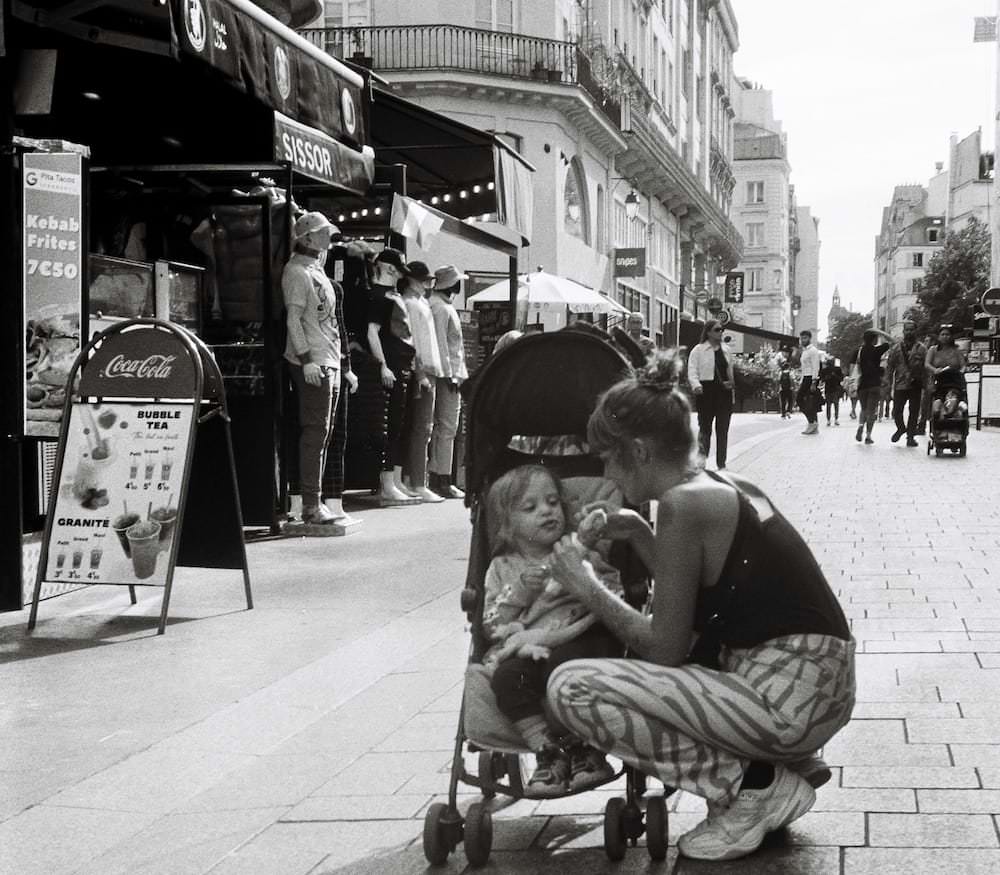être en train de
In French, there is no direct equivalent to the English present continuous (“I am eating”) or past continuous (“I was eating”). Instead, French speakers use the construction “être en train de” + infinitive to emphasize that an action is (or was) in progress. This guide will cover how to use it in both the present and imparfait tenses, with plenty of examples.
1. Present Continuous: “être en train de” (Present Tense)
Structure:
Subject + être (present) + en train de + infinitive
Usage:
- Emphasizes an action happening right now.
- Stronger than the simple present (Je mange), which can be habitual.
Examples:
- Je suis en train de manger. (I am eating right now.)
- Elle est en train de travailler. (She is working at this moment.)
- Nous sommes en train de regarder un film. (We are watching a movie.)
When to Use It:
For ongoing actions (“I’m doing this right now”)
For interruptions (“I was in the middle of…”)
For strong emphasis (“I’m not just doing this generally – I’m doing it NOW!”)
When Not to Use It:
For habitual actions: Je mange du pain tous les matins. (I eat bread every morning.)
For future actions: Je vais manger plus tard. (I’m going to eat later.)
With non-action verbs (e.g., savoir, connaître, vouloir): Je sais la réponse. (I know the answer.)
2. Past Continuous: “Être en train de” (Imparfait Tense)
Structure:
Subject + être (imparfait) + en train de + infinitive
Usage:
- Describes an action that was in progress in the past.
- Often used for interrupted actions or setting a scene.
Examples:
- J’étais en train de manger quand il a appelé. (I was eating when he called.)
- Elle était en train d’étudier quand l’électricité a coupé. (She was studying when the power went out.)
- Ils étaient en train de discuter depuis des heures. (They had been talking for hours.)
Key Notes:
- The simple imparfait (Je mangeais) can already imply ongoing past actions, but “être en train de” makes it more vivid.
- Je lisais un livre. (I was reading a book.) – neutral
- J’étais en train de lire un livre. (I was in the middle of reading a book.) – stronger emphasis
When Not to Use It:
- With non-action verbs: Je savais la réponse. (I knew the answer.)
- For completed past actions (use passé composé instead): J’ai mangé. (I ate.)
3. Common Mistakes to Avoid
- Using it with non-action verbs
Incorrect: Je suis en train de savoir…
Correct: Je sais… (I know…) - Overusing it
The simple present (Je mange) and imparfait (Je mangeais) often suffice unless you need extra emphasis.
4. Practice Exercises
Translate into French using “être en train de”:
- They are playing football. (Ils sont en train de jouer au football.)
- Were you sleeping when I called? (Est-ce que tu étais en train de dormir quand j’ai appelé ?)
- She wasn’t working; she was reading! (Elle n’était pas en train de travailler ; elle était en train de lire !)
5. Summary
- Present: “Être en train de” = “I am doing” (right now).
- Past: “Être en train de” (imparfait) = “I was doing” (ongoing action).
- Use it for emphasis but avoid overuse – French often relies on simple tenses for continuous meanings.






